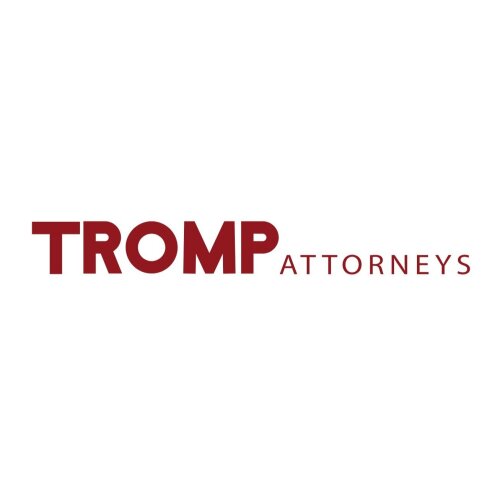Best Animal Law Lawyers in Curaçao
Share your needs with us, get contacted by law firms.
Free. Takes 2 min.
Or refine your search by selecting a city:
List of the best lawyers in Curaçao
About Animal Law in Curaçao
Animal law in Curaçao involves a myriad of legal areas concerning the rights, protection, and well-being of animals. This can range from laws that prevent cruelty and neglect to regulations concerning agriculture, wildlife conservation, and pet ownership. The legal framework in Curaçao is influenced by its civil law system, and like many other jurisdictions, the local government strives to balance human needs with ecological and animal welfare considerations.
Why You May Need a Lawyer
There are several situations where individuals may require legal assistance in animal law:
- If you face allegations of animal neglect or cruelty and need representation.
- If you encounter disputes involving pet custody or damage caused by animals.
- When navigating legal requirements for exotic pets or wildlife conservation.
- If you are involved in businesses related to animals, such as farming or veterinary services, and need compliance advice.
- For animal-related legislative advocacy or animal rights campaigns.
Local Laws Overview
Key aspects of animal laws in Curaçao include:
- Anti-Cruelty Legislation: There are stringent laws against animal cruelty and neglect, with significant penalties for violators.
- Pet Ownership Regulations: Establishes guidelines on pet care, vaccination, and identification to ensure responsible ownership.
- Wildlife Protection Laws: Focuses on conserving native ecosystems and protecting endangered species from illegal trade or harm.
- Regulations on Exotic Animals: Specific rules govern the ownership and care of exotic species to prevent ecological disruption.
- Animal Business Compliance: Includes licensing, welfare standards, and operational guidelines for businesses dealing with animals.
Frequently Asked Questions
What is the primary law governing animal welfare in Curaçao?
The primary legislation includes animal protection acts that prohibit cruelty and outline the responsibilities of animal owners. Specific laws may provide detailed regulations for various animal-related issues.
Are there specific laws about pet vaccination?
Yes, pet owners are required to vaccinate their animals according to specified schedules, mainly to control the spread of diseases like rabies.
What should I do if I encounter an animal cruelty case?
Report the incident to local authorities or animal protection organizations that can investigate and take appropriate action against the perpetrator.
Can tenants legally have pets in rented properties?
Pets in rental properties are subject to tenancy agreements. It's crucial to review contract terms as landlords may impose restrictions or require deposits.
How do the laws address stray animals?
Local municipalities often have services to manage stray animal populations, including shelters and adoption programs, to ensure humane treatment and reduce numbers.
Is there a legal process for resolving pet custody disputes?
Yes, in cases of separation or divorce, courts may consider several factors, including the pet's welfare, to resolve custody issues, sometimes using mediation or legal proceedings.
What permits are needed for owning exotic pets?
Owning exotic pets usually requires special permits and compliance with care standards to ensure the owner's abilities to safely keep the animals.
Are there any quarantine laws for bringing pets into Curaçao?
Yes, pets brought into Curaçao may need to comply with quarantine rules and health examinations to prevent the spread of diseases.
What organizations help with animal rescue in Curaçao?
Several national and local organizations work towards animal rescue, rehabilitation, and providing shelter, which can be valuable resources for assistance.
How can animal law influence business operations like animal transport or farming?
Businesses must adhere to animal welfare standards, transportation regulations, and humane practices to avoid penalties and ensure ethical operations.
Additional Resources
For those seeking more information or assistance, consider reaching out to:
- Local Animal Shelters: They can provide guidance on animal care, stray management, and rescue operations.
- Veterinary Associations: Offer insights into health regulations and best practices for pet care and management.
- Governmental Departments: The environment or agricultural departments often regulate wildlife and animal issues.
- Legal Aid Services: These can provide initial consultations or referrals for legal assistance in animal law.
Next Steps
If you require legal assistance in animal law:
- Assess your legal needs and determine the specific area of law or dispute involved.
- Consider consulting with a lawyer specializing in animal law to explore your options and legal rights.
- Gather any pertinent documents or evidence related to your case to facilitate better legal advice and representation.
- Stay informed about your rights and obligations under local animal laws to ensure compliance and protect your interests.
Lawzana helps you find the best lawyers and law firms in Curaçao through a curated and pre-screened list of qualified legal professionals. Our platform offers rankings and detailed profiles of attorneys and law firms, allowing you to compare based on practice areas, including Animal Law, experience, and client feedback.
Each profile includes a description of the firm's areas of practice, client reviews, team members and partners, year of establishment, spoken languages, office locations, contact information, social media presence, and any published articles or resources. Most firms on our platform speak English and are experienced in both local and international legal matters.
Get a quote from top-rated law firms in Curaçao — quickly, securely, and without unnecessary hassle.
Disclaimer:
The information provided on this page is for general informational purposes only and does not constitute legal advice. While we strive to ensure the accuracy and relevance of the content, legal information may change over time, and interpretations of the law can vary. You should always consult with a qualified legal professional for advice specific to your situation.
We disclaim all liability for actions taken or not taken based on the content of this page. If you believe any information is incorrect or outdated, please contact us, and we will review and update it where appropriate.
Browse animal law law firms by city in Curaçao
Refine your search by selecting a city.









